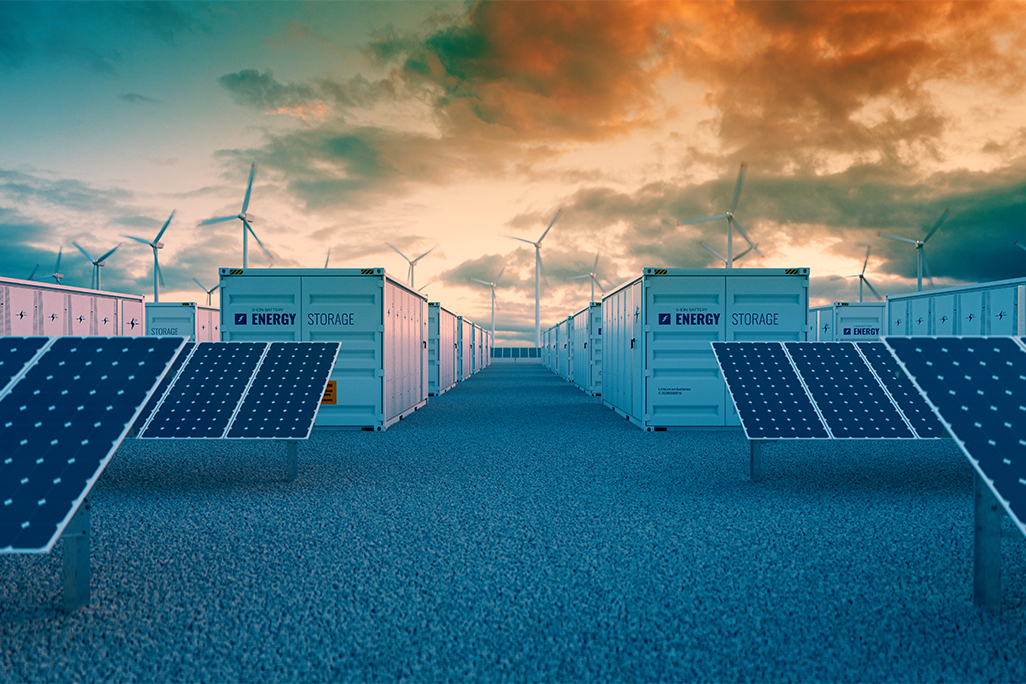What would Labour do? The 'Green prosperity plan' intended to boost UK jobs and energy security
Published on 29th June 2023
Policy paper provides comprehensive overview of the Opposition's green ambitions

In the second of our occasional series looking at the Labour Party's developing policies on business and law, we consider its clean energy "mission" for the UK.
This is the fourth mission to be announced by the Labour Party in its campaign to create a "better Britain", and was the subject of a speech from its leader, Sir Keir Starmer, last week. (The other missions focus on economic growth, the NHS, street crime, and removing barriers to opportunity.)
While many of Labour's green proposals were announced in the preceding month, its latest announcement (accompanied by a policy paper) provides a comprehensive overview of its green ambitions. Its stated aim is to make Britain a "clean energy superpower" and to "cut bills, create jobs and deliver energy security" by 2030.
Self-sufficiency
Labour's aim is for the UK to make itself self-sufficient in generating its own electricity. The intention is to use less fossil fuels and end the reliance on other countries for power. The UK would therefore be protected against the shock caused by international energy crises such as that caused by Russia's invasion of Ukraine. The price of energy should drop, all while creating new jobs to sustain the UK's own energy industry.
To make its vision for a green UK energy industry a reality, has promised that "Labour will throw everything at this: planning reform, procurement, long-term finance, R&D, a strategic plan for skills and supply chains … Pulling together for a simple, unifying priority: British power for British jobs”.
Changes to planning system
Labour’s plans include widespread changes to the planning system: allowing onshore wind farms, electricity lines, transport links and other low-carbon infrastructure to be built quickly. Regulators will be instructed to prioritise low-carbon projects, and companies will have assurances given on long-term policy to encourage investment.
To gain support from all nations across the UK, planning policies for onshore wind and pylon construction will be devolved to the Scottish and Welsh governments, with the headquarters of the new state-owned energy company to be based in Scotland.
Labour’s plans for renewable energy also include a ban on new oil and gas exploration and development in the North Sea. However, rescinding permission for projects that have achieved all three levels of consent (for exploration, development and production) before the general election would be costly and legally complex. As such, Labour has conceded that a ban on new oilfields will not cover projects already permitted.
Labour seeks to overhaul the planning system and – five years earlier than the 2035 target of the current Conservative government.
Previous energy policy promises
Starmer announced Labour's intention to establish a publicly owned clean energy generation company in September 2022. In his speech, he reinforced this pledge announcing the proposed establishment of "Great British Energy". This new public company would be charged with investing in clean energy projects in every national community, delivering additional funding alongside the private sector.
However, some previous energy commitments promised by Labour were not echoed in his speech, with Labour having pulled back earlier this month on a pledge to invest £28bn in a green industrial strategy. This figure will now not be reached until the second half of a Labour government, with leading party members citing rising interest rates as the reason for this shift in ambition.
Developing green infrastructure
Labour argues that, if the regulatory and grid infrastructure system would allow it, the UK has huge potential to develop its green energy infrastructure, both onshore and offshore.
The UK currently has one of the largest installed offshore wind capacities in the world – second only to China. Labour's 2030 ambitions would see offshore wind capacity quadruple to 55GW (with an additional 5GW of floating wind), solar triple to 50GW and onshore wind double to 35GW.
Labour's view is that restrictive government policy has played a major role in the lack of green power in the UK. Currently, any major new energy development usually has to go through the Development Consent Order process in order to gain planning consent, the timeframe for which is an average of two years.
Another example given of restrictive policy is the de facto onshore wind ban which was introduced in 2015 by then-prime minister, David Cameron, where an onshore wind farm could be blocked if there was a single local objection to the scheme. Onshore wind sites also had to be predesignated by the local council in their local plans, which they are required to draw up to set out their economic priorities. This all but made onshore wind impossible to get through the planning system.
An additional barrier in the transition to a net zero energy system currently being experienced by new renewable generation projects is the significant delays experienced in connecting to the grid (as discussed in a recent Insight). Labour acknowledges this issue in its climate plan, promising to "rewire Britain" to unblock connection queues and significantly increase capacity.
Osborne Clarke comment
Labour's climate mission provides a clear statement of the extent of its ambition to decarbonise the UK's energy supply, while seeking to maximise the job and growth creation potential that can flow from green investment across both the public and private sectors.
Labour is correct in criticising the UK's restrictive planning regime and a policy approach that trumpets headline capacity targets over delivery plans. Against the backdrop of these current obstacles, the commitment to achieving a clean UK energy supply by 2030 is certainly stretching. If it can be realised, it would make the UK the first country in the world to reach this milestone. There have, however, been some understandable doubts from within the industry as to whether this target is attainable, given the scale of changes needed to grid infrastructure and planning policy in order to achieve it.
Nevertheless, the level of ambition set out in the plan has the potential to provide a significant boost to the UK's trajectory towards net zero, and has been broadly welcomed by the green energy industry.
Our first Insight in this series examined Labour's "Start-up review" and its future policy on UK venture capital, tax incentives and access to capital.
This Insight was prepared with the assistance of Niamh Osman, Trainee Solicitor.




